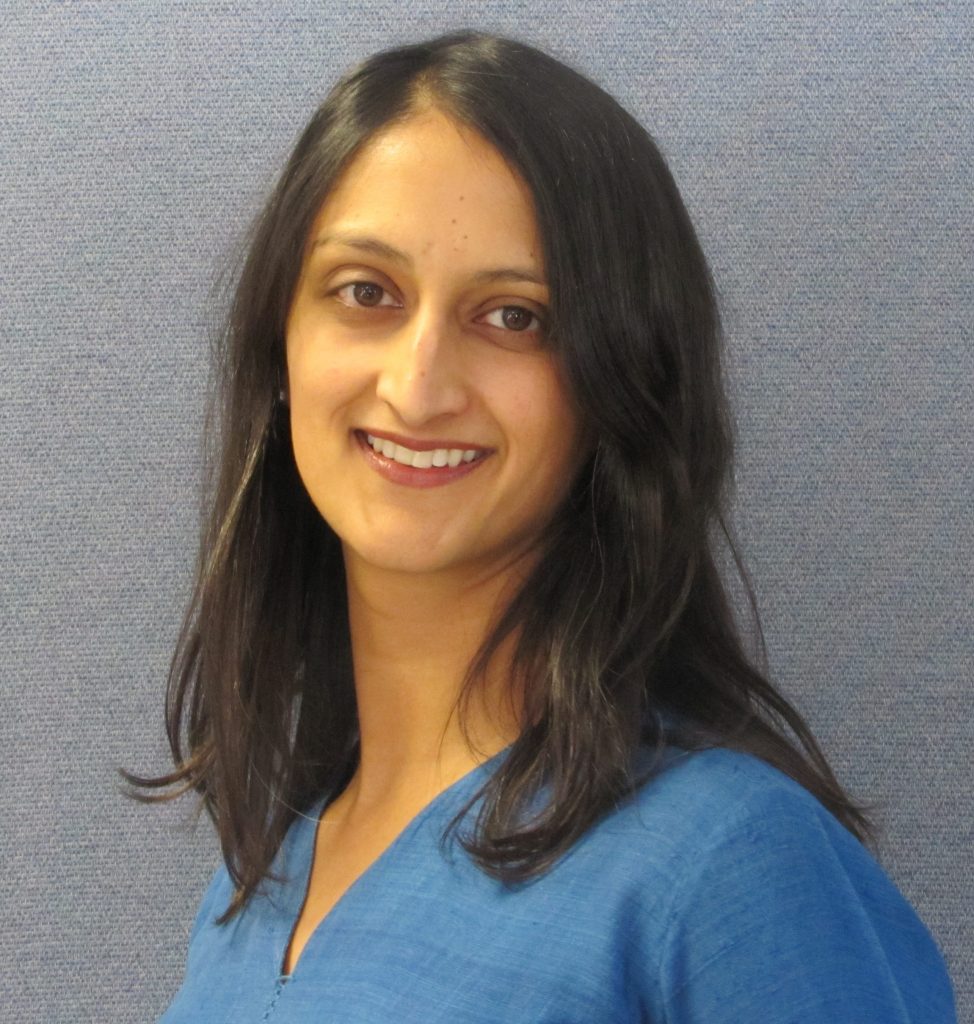
Frustrated by the gaps she saw between theoretical and actual patient outcomes, Varsha Vimalananda, MD, MPH, decided to pursue a career in health services research, which looks at quality, access, and costs of healthcare, and may even help endocrinologists lead the way for measuring and improving how endocrine care is delivered.
During her clinical training, Varsha Vimalananda, MD, MPH, says she experienced firsthand the gaps between theoretically possible outcomes and what she could accomplish for her patients within the constraints of policy, organizational, and socioeconomic factors. Discontent with this gap led Vimalananda, a physician-scientist at the Veterans Affairs (VA) Center for Healthcare Organization and Implementation Research (CHOIR), to a career in health services research (HSR). “My ultimate goal is to help narrow the gap between the promises of carefully controlled clinical studies and actual patient outcomes,” she says.
Endocrine News caught up with Vimalananda to learn more about what HSR could mean for the endocrine community.
Endocrine News: What is health services research (HSR)?
Varsha Vimalananda: Health services research is research on quality, access, and the cost of healthcare. This is translational research that focuses on where the rubber meets the road in terms of the impact of basic science and clinical trials in the real world. HSR “studies how social factors, financing systems, organizational structures and processes, health technologies, and personal behaviors affect access to healthcare, the quality and cost of healthcare, and ultimately our health and well-being,” according to the Agency for Healthcare Research and Quality. We apply robust theoretical frameworks to understand and improve healthcare delivery at the policy, community, organizational, provider, and patient/family level.
Health services research is research on quality, access, and the cost of healthcare. This is translational research that focuses on where the rubber meets the road in terms of the impact of basic science and clinical trials in the real world.
HSR projects are often conducted by teams with various areas of high-level expertise. For example, I started my research career doing large-scale secondary data analyses. My current career development award from the VA is focused on measuring and improving coordination of specialty care. I am applying both survey methods and qualitative methods. I will then design and trial an intervention that I will refine and scale up in future work, using methods from implementation science. I’ll collaborate with policy and hospital leaders and incorporate feedback from mentors and research center colleagues throughout. If I help improve some part of specialty care coordination and its many related outcomes, this research agenda will have been a success.
EN: How could HSR be valuable for endocrinologists?
VV: HSR is of value to anyone who wants to improve endocrinology healthcare delivery. Everyone who practices clinical medicine probably identifies these opportunities every day. Think about the prevalence and burden of endocrine conditions like obesity, diabetes, thyroid disease, and osteoporosis. Findings from HSR about how to improve care delivery for these conditions can translate to major gains in health, cost savings, and patient experience.
We apply robust theoretical frameworks to understand and improve healthcare delivery at the policy, community, organizational, provider, and patient/family level.
There is a lot of very strong, high-impact, endocrinologist-led HSR, but it is often not identified as such. At the institutional level, there may be one or no other endocrinologist in HSR. Creating an HSR community of endocrinologists, disseminating our work, mentoring, and advancing collaborations may need to happen at a national level. The major benefit of greater visibility for HSR would be to maximize endocrinology’s impact and influence over the healthcare delivery research agenda and ultimately the quality of care for conditions about which we have the most specialized knowledge. We should be the leaders in measuring and improving how we deliver care in our field.
EN: Are there any major HSR studies that have shaped policy or practice in other specialties?
VV: But of course! Many may be familiar with the impact of HSR in cardiology that identified barriers to goal door-to-balloon times, developed interventions to overcome those barriers, and implemented them broadly with great improvement in guideline-concordant care and outcomes in the U.S.
EN: For anyone interested in HSR, what resources and training are available?
Vimalananda: Physicians have a unique role in HSR — we have clinical expertise and depth of firsthand knowledge about how the healthcare system functions. To that, you need to add basic training in HSR. A master’s degree in public health or similar field is very helpful. Many medical schools offer T32 programs to fund such training. There are also certificate programs, short courses, and fellowships that offer HSR training. For an early career researcher, strong mentorship is necessary for success. For that, you may need to look beyond your own section to other clinical sections or schools of public health. A little more effort is required to create your research program in HSR coming from a subspecialty, but I have found it well worth it.
—Glenda Fauntleroy Shaw is a freelance writer based in Carmel, Ind. She is a regular contributor to Endocrine News.

